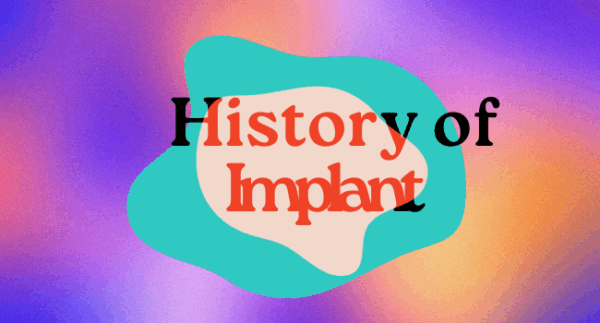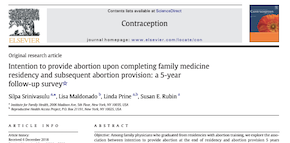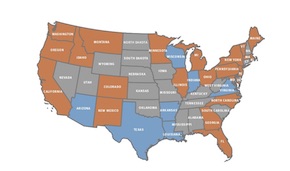Aug 14

Help Us Protect Access to Sexual and Reproductive Health Care Today!
 We’re growing! The Reproductive Health Access Project (RHAP) is seeking a full-time Communications Manager and a part-time Fall Development Intern to join our team.
We’re growing! The Reproductive Health Access Project (RHAP) is seeking a full-time Communications Manager and a part-time Fall Development Intern to join our team.
Supporting the work of a small but busy organization, these positions will play a key role in ensuring that RHAP meets its short and long-term strategic goals. Through our national organizing and mobilizing, we are building a movement to change the way reproductive health care is provided, and we are looking for highly motivated, organized, and detail-oriented individuals to join our movement.
You can learn more about each of these positions, and apply, on our website. Please share the positions with someone if you think they would be a good fit for one of these roles.
 We’re excited to share that findings from our annual five-year follow-up survey of family medicine residents trained in abortion care have just been published in the journal Contraception! We explored whether residents who had intended to provide abortion after residency actually went on to offer abortion care five years after graduating.
We’re excited to share that findings from our annual five-year follow-up survey of family medicine residents trained in abortion care have just been published in the journal Contraception! We explored whether residents who had intended to provide abortion after residency actually went on to offer abortion care five years after graduating.
Here are our key findings:
This research highlights why RHAP’s work to make reproductive health care accessible to everyone is so important. These findings demonstrate the need to expand post-residency programs for family physicians that involve both clinical training and skills development to negotiate practice change in primary care settings, like RHAP’s Reproductive Health Care and Advocacy Fellowship and Miscarriage Care Initiative. You can access the article on our website.
 RHAP values the work that our interns do to contribute to our mission of making reproductive health care accessible to all. We are fortunate to have two amazing people joining our team this summer!
RHAP values the work that our interns do to contribute to our mission of making reproductive health care accessible to all. We are fortunate to have two amazing people joining our team this summer!
Marisa Peters is RHAP’s Summer 2019 Communications Intern. She is currently a senior at Union College majoring in French and Sociology with a specialization in medical sociology. Marisa is passionate about reproductive rights and has written numerous research papers about early pregnancy loss, mifepristone, and abortion access. Her interests and efforts awarded her the 2018 Public Health Klemm Fellowship, where she worked at a neonatal and family planning clinic in Madagascar. In the future, Marisa hopes to help organizations across the world increase access to and knowledge of reproductive health.
At RHAP, Marisa looks forward to composing and contributing to RHAP’s social media posts and newsletter. She is excited to share with a broad audience the news and progress in abortion access, with an emphasis on primary care clinicians.
Maya Walsh-Little is RHAP’s Summer 2019 Development Intern. She is currently a rising junior at Oberlin College studying Spanish as well as Gender, Sexuality, and Feminist Studies. Maya is extremely passionate about reproductive health and justice and is currently the Co-Director of Oberlin’s Sexual Information Center, where she teaches a comprehensive sex-ed class and distributes sexual health supplies. She has interned with Dr. Cooper Owens and is also on the Leadership Circle of the Oberlin Doula Collective. In the future, she is interested in working in reproductive health education and research.
 Supporting our network of primary care clinicians to expand access to abortion, contraception, and miscarriage care lies at the heart of what RHAP does. We do this through our training and technical assistance programs, such as the Reproductive Health and Advocacy Fellowship and the Miscarriage Care Initiative, and through our Reproductive Health Access Network. The Network is our community of over 3,000 primary care clinicians from across the country, who come together in person and virtually to support each other, advocate for reproductive health care access, and engage in clinical training.
Supporting our network of primary care clinicians to expand access to abortion, contraception, and miscarriage care lies at the heart of what RHAP does. We do this through our training and technical assistance programs, such as the Reproductive Health and Advocacy Fellowship and the Miscarriage Care Initiative, and through our Reproductive Health Access Network. The Network is our community of over 3,000 primary care clinicians from across the country, who come together in person and virtually to support each other, advocate for reproductive health care access, and engage in clinical training.
This past spring, in response to requests from our Network leaders, we were able to start offering free Continuing Education (CE) medication abortion workshops to our Clusters around the country. Clinicians are required to obtain a certain number of CE credits per year in order to maintain their licenses and stay up to date on evidence-based, patient-centered care. By offering free credits, we’re able to provide access to abortion training for all of our Cluster members. After the training, Cluster members who are committed to integrating medication abortion care into their practice settings are connected with RHAP for technical assistance to help them get this service up and running as soon as possible.
Our very first medication abortion with free CE workshop took place in Massachusetts and was led by Dr. Honor MacNaughton, RHAP’s first fellow and a co-Cluster leader. The room was filled with over 30 clinicians, residents, and students- and the training was even featured on WBUR, Boston’s NPR New Station! Check it out here.
In June, the North Carolina Cluster hosted the next medication abortion training. Because the Cluster is large and includes clinicians from all across the state, the workshops happened simultaneously in three different locations – the Triangle, Asheville, and Greenville. Each site had its own in-person training, and then the group combined to discuss implementation using Zoom. Over 30 clinicians received credit, including several clinicians who were brand-new to the Cluster.
Reflecting on the evening, Dr. Erica Pettigrew (one of the co-Cluster leaders) shared: “It was such a powerful evening – dozens of people in three locations across our state coming together at one time to protect and advance access to reproductive health. Shared values and a sense of outrage unite us in our collective purpose. Thank you to RHAP for providing resources for this to happen.” Having a workshop that spread across the state demonstrated to us that even in geographically larger states, we can use technology to create a statewide community of motivated, inspired clinician advocates.
We’re grateful to our Massachusetts and North Carolina Clusters for helping us pilot this brand new CE opportunity, and we look forward to our upcoming medication abortion workshops in Maine, Illinois, Oregon, Rhode Island, and more this fall!
If you are a clinician and would like to join the Network, please sign up here. If you’re a clinician and interested in learning more about hosting or attending a medication abortion, please email Laura Riker, National Organizer, here.
Your gift allows us to train and support health care providers across the United States so they can offer patients compassionate and comprehensive care.
Aug 14
